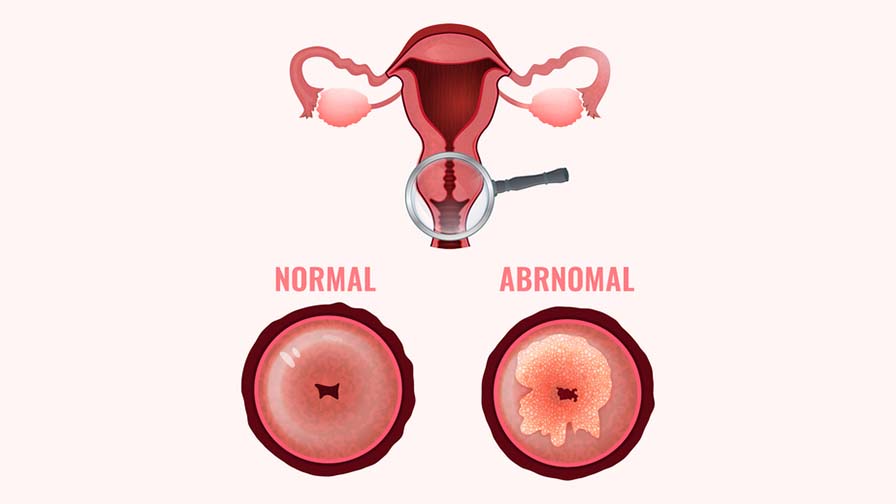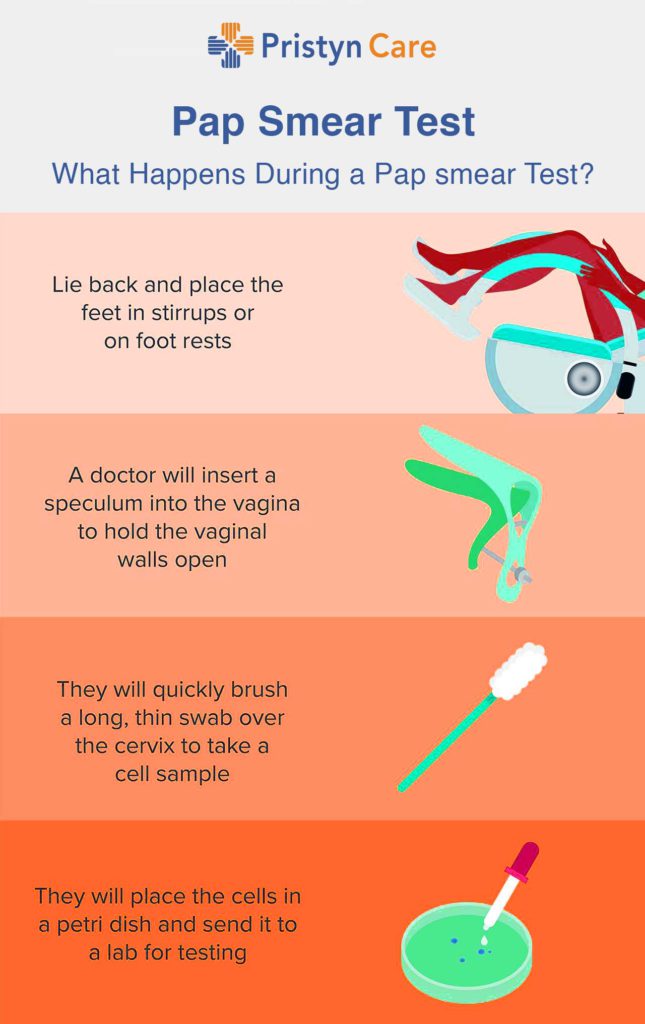Pap Smear Test: Need and Procedure
Schedule Your
Appointment
Overview
A Pap smear tests for the presence of precancerous or cancerous cells on the female’s cervix (the opening of the uterus) and is a screening procedure for cervical cancer. A Pap smear, also known as a pap test is not painful but can be uncomfortable and cause spotting or light bleeding after the procedure. Pap smear does not cause any long-term side-effects or complications. In a pap smear test, cells from the cervix are gently scraped and examined for any abnormal growth. This procedure is done at the gynecologist’s clinic itself. Read ahead to learn more about who needs a Pap smear and the procedure and results of pap smear test.

Who needs a Pap smear?
Most females between the age 21 to 65 years old should get regular Pap tests as part of their routine health care. Even if a female is not currently sexually active, has gotten the HPV vaccine, or has gone through menopause, she still should get regular Pap tests. Females between the age 21–29 should get a Pap test every 3 years. Females between the age 30–65 should get a pap smear test every 3 years, an HPV test every 5 years. Between the age of 30 to 65, females should also get a Pap and HPV test together, which is known as co-testing every 5 years. HPV tests are recommended for females of the age 30 and above. Pap smear tests combined with HPV tests, or just HPV tests alone, are very useful for females 30 and older.
Procedure of Pap Smear test
With the woman lying on her back, the gynecologist will first examine the outside of the female’s genital and rectal areas, including the urethra (the opening from where urine leaves the body), to make sure that they look normal. A speculum (an instrument which allows the gynecologist to see and examine the vagina and the cervix) is then inserted into the vagina, which passes through the vaginal area (the birth canal). The gynecologist would then use a small brush or swab and insert it into the opening of the cervix to collect a sample of cells. The sample is then sent to the laboratory for further evaluation.

What do the results of a Pap smear test mean?
A Pap smear test results will say one of the following things:
The Result is Normal
“Normal” pap smear result means that the cells collected from the female’s cervix look normal like they should and the female does not have to do anything until her next Pap test. No cancerous cells or HPV strains are found if the pap smear test result is normal.
The Result is Unclear:
“Unclear” pap smear test result indicated that the gynecologist does not know whether the sample cells collected from the female’s cervix are normal or abnormal. If the results of a pap test are unclear, the gynecologist may do more tests right away to rule out any complications or problems. If things seem okay, the gynecologist may have the female come back in 6 months or so for another pap test.
The Result is Abnormal:
“Abnormal” pap smear test result means that the cells collected from the female’s cervix during the Pap test look abnormal. Abnormal Pap test results do not necessarily mean that the female has cancer. If the results of a pap test are abnormal, the gynecologist will do more tests right away to figure out what should happen next. In such when the results seem less serious, the gynecologist may do another pap test right away or wait 6 months or 1 year before doing another pap smear test. If the pap test finds more serious changes in the cells of the cervix, the gynecologist will do more tests, like a colposcopy and biopsy.
Are there any risks of having a Pap smear?
There are absolutely no medical risks associated with Pap smear tests. Medical experts have found no risk or long term side effects associated with pap tests. However, there may be various medical risks from not having a Pap smear. A female may experience a small amount of spotting or light vaginal bleeding for a few days immediately after a Pap smear, which is normal and is likely to resolve in a few days. This generally happens as the cervix may get irritated and is nothing to worry about. Pap smears tests may be uncomfortable. However, pap tests are an important measure to ensure the health of females of all ages. A female above the age of 21 should get regular pap smear tests, as suggested by the gynecologist.
Our Clinical Footprint

30000+
Happy Patients
10000+
Surgeries
100+
Doctors
70+
Clinics
20+
Cities
200+
Hospitals
Our Clinical Footprint

30000+
Happy Patients
10000+
Surgeries
100+
Doctors
70+
Clinics
20+
Cities
200+
Hospitals